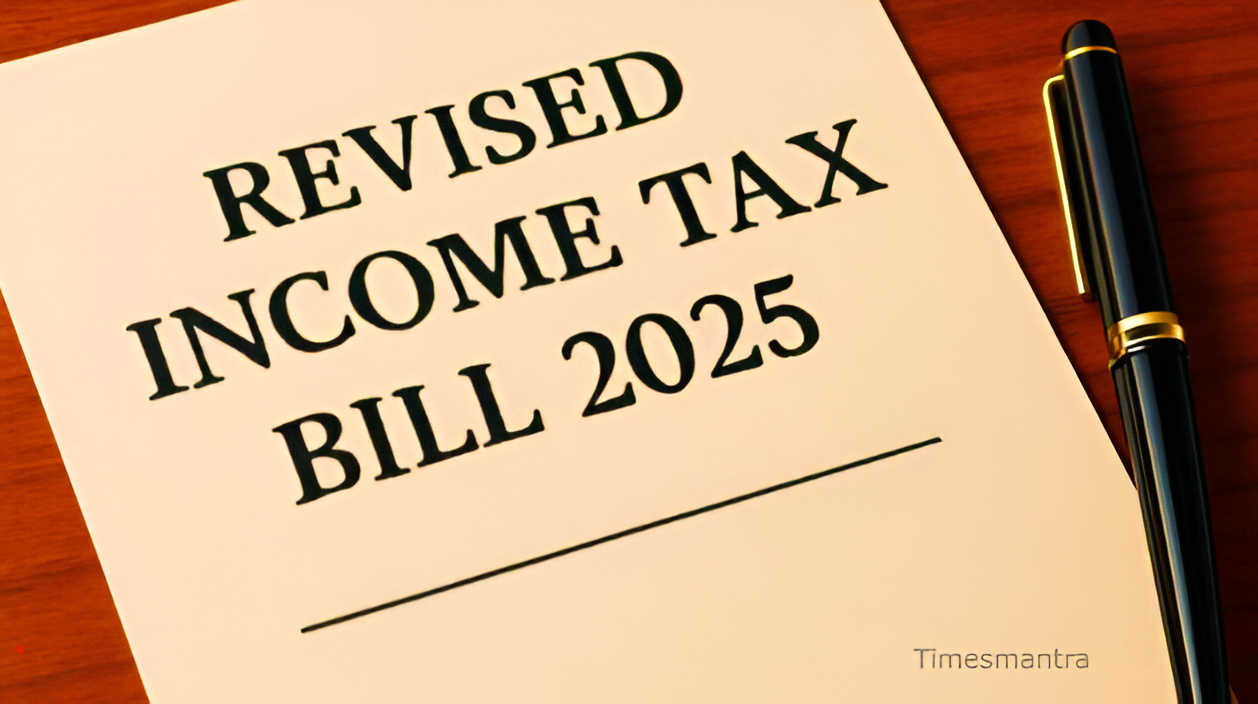Revised Income Tax Bill 2025 Introduced in Lok Sabha
Government withdraws original bill to incorporate committee feedback revised version tabled today, promising a simpler tax code and more relief for taxpayers.
In a move that signals the government’s strong commitment to a comprehensive tax overhaul, Finance Minister Nirmala Sitharaman today tabled the Revised Income Tax Bill 2025 in the Lok Sabha. The new bill comes just days after the government withdrew the original draft, which had been introduced in the Budget Session and subsequently referred to a parliamentary select committee for review.
The decision to withdraw and reintroduce the bill was a strategic response to the detailed feedback provided by the parliamentary committee. The government’s stated aim is to present a more robust, clear, and taxpayer-friendly piece of legislation that avoids the drafting ambiguities and technical gaps identified in the first version. This new draft is a testament to the collaborative legislative process, where expert recommendations have been integrated to shape a law that is not only simpler but also more equitable.
The original Income Tax Bill 2025 was touted as a landmark reform, designed to replace the six-decade-old Income Tax Act of 1961 with a modern, consolidated, and user-friendly law. While the core principles of that reform—such as simplification, reduced litigation, and a focus on digital administration—have been retained, the revised bill introduces significant changes based on expert opinion and public suggestions.
One of the most anticipated changes is a substantial enhancement of taxpayer relief, particularly for middle-income earners. The revised bill retains the new tax regime as the default option but introduces a crucial amendment to Section 87A. The tax rebate under this section, which was previously applicable on a taxable income of up to ₹7 lakh, has been significantly enhanced. The new proposal raises the rebate limit to an impressive ₹60,000, making all individuals with a taxable income of up to ₹12 lakh effectively pay zero income tax under the new regime. This is a monumental step towards easing the financial burden on the salaried class and other taxpayers.
Furthermore, the government has addressed several key areas flagged by the parliamentary committee, particularly concerning the taxation of house property and commercial assets. The revised bill includes a clear provision for comparing actual rent received with “deeming rent” for properties that were vacant for a part of the year. This change restores a provision from the older act, removing a drafting ambiguity that could have led to a higher tax outgo for property owners. The bill also clarifies that temporarily unutilized commercial properties will not be taxed under the “income from house property” head, providing much-needed relief to businesses and real estate owners.
For Micro, Small, and Medium Enterprises (MSMEs), the revised bill brings a host of welcome changes aimed at fostering growth and reducing the compliance burden. The turnover limit for the presumptive taxation scheme under Section 44AD has been increased from ₹3 crore to a new, higher threshold, provided a specified percentage of transactions are digital. This move simplifies the tax filing process for a larger number of small businesses and encourages digital payments. The bill also includes new provisions to ensure timely payments to MSMEs by larger corporations, a long-standing demand from the sector. It is proposed that deductions for expenses paid to MSMEs will only be allowed on a cash basis, effectively incentivizing prompt payment.
The revised bill also streamlines provisions for corporate taxation. It introduces clearer definitions for terms like “beneficial owner” and “non-performing assets” to minimize legal disputes. The government has also accepted the committee’s recommendation to restore deductions for inter-corporate dividends, a measure that will significantly benefit corporate groups. Another key proposal is the extension of the tax holiday period for startups and new manufacturing companies, providing them with a longer runway for growth and profitability.
While the new bill is expected to pass smoothly, it is likely to be followed by a vigorous debate in the Lok Sabha. The opposition and other stakeholders will undoubtedly scrutinize the finer details of the revised clauses. However, the government’s proactive approach in withdrawing the original bill and tabling a more refined version has been widely appreciated as a sign of responsive governance.
The introduction of the Revised Income Tax Bill 2025 marks a crucial milestone in India’s journey towards a modern, simplified, and fair tax system. The bill, once passed, is expected to come into effect from the beginning of the next financial year, providing a clear and predictable tax environment for individuals and businesses alike. Its focus on taxpayer relief, MSME support, and litigation reduction holds the promise of a more prosperous and transparent economy.
